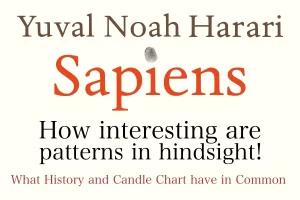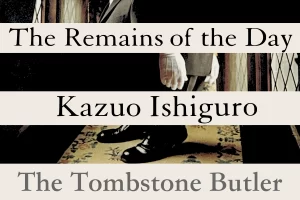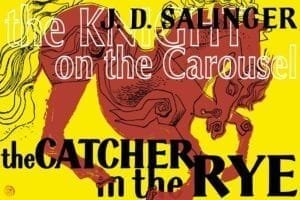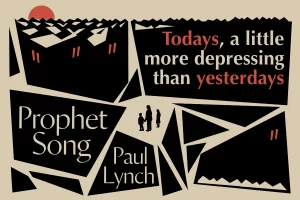The Tombstone Butler

I love the topics that Kazuo Ishiguro would tackle. As Holden would put it, the novels he writes make you wish he were your friend, so you can call him up and talk about it afterwards. Sometimes you like a piece so much that you wish you could somehow get a stamp acknowledging that you are the biggest fan on Earth, as if you’re the only one besides the author that really understands the slightest nuances. I’m not saying it was exactly the case here – to want validation for my liking – but nonetheless the topics he crystalizes did make me just want to talk about it with somebody. It would ignite conversations that you feel like it’s been thirty minutes but in fact has been an hour and half. Ishiguro talks about the shift in world power, history, love, the pursuit of personal happiness through the lens of professional dignity.
I don’t mean to mislead you. I’m clearly not, his biggest fan. This is only my second book of Ishiguro’s.
Recommendation for Readers
Written from scratch by Meston Ecoa
No assistance was received from any form of Artificial Intelligence.
No Spoiler Summary
contains no spoilers
Stevens, an English butler, is given a few days off to journey the countryside. He ruminates the incidents that happened in his career. He is a man passionate about the dignity of his profession. His life is the pursuit of upholding this value. It is a value that only few maintain. It is perhaps outdated. WWII has removed wealth from his previous employer, Lord Darlington. It also scarred his honor. This is perhaps representative of the effect of the war on Britain. On his journey he thinks about what remains of the day.
One Paragraph Review
contains no spoilers
Strangely, The Remains of the Day reminded me of John Mayer’s song Belief. It goes like this. “Belief is a beautiful armor. But makes for the heaviest sword. Like punching underwater. You never can hit who you’re trying for. Some need the exhibition and some have to know they tried. It’s the chemical weapon for the war that’s raging on inside.” It really struck me, that someone would decide to sing about something like this. The songs I usually listen to are about love, breakups, the good times and bad times, insecurities or whatever. Anyways, it was the first time I heard a song about the abstract concept of belief. Ishiguro too points out something peculiar, something unique and contemporary. This time he weaves multiple notions through a consistent thread – dignity. This butler from the early nineteen hundreds represents an ethos, a morality, that struggles to acclimate itself to a new era. He is content but he is discomposed. He is adamantly fixed, on a platform beset by history. After storms have passed, he counts what remains of the day.
Some Information
• 245 pages, 76,900 words
• Vocabulary level: Medium-Easy
• Library of Congress Genres: Historical Fiction, Love Stories
• Goodreads Genres: Fiction, Historical Fiction, Classics, Literary Fiction, Historical, Literature, Novels, British Literature
• Year of publication: 1989
• This is Kazuo Ishiguro’s third novel excluding short fiction and screenplays. He was 35 when he wrote this piece. It won the Man Booker Prize in 1989.
• Meston’s Rating: 4.0
Full Summary
contains spoilers
In the summer of 1956, a butler from a grand estate in England sets out on a journey to the west countryside. He was serving Lord Darlington until he passed away soon after the war. Darlington Hall is now in the possession of an American man named Mr. Farraday, who is Stevens’ current employer. Such transfer of wealth is prevalent throughout Europe. As the capacity and need to hire extensive personnel for the maintenance of the estate has decreased, the employees have shrunk considerably to just three. As Mr. Farraday is set to leave Darlington Hall for a while, he suggests Stevens to explore the countryside. He reluctantly consents.
As he is traveling, he ponders the essence of dignity, especially regarding the profession as a butler. He thinks about his father, who also used to serve Lord Darlington until his last breath. Consistently maintaining the professional ego, unless at the privacy of one’s own, is what he deems admirable, and what he strives for. He recollects the conference of 1923 to be a transformative one regarding his profession. It was an event where politicians and distinguished guests from Europe and America have gathered to discuss the postwar affairs of WWI. Occupied with his duties, he was not able to keep his father’s side when he passed away. He believed in the honor of serving great men do great things. It was his sense of duty to the world.
The numerous conferences and high profile meetings that took place in Darlington Hall that Stevens dignified, were for doubtful causes. Lord Darlington once supported anti-semitism. He also pulled all the strings he could to arrange a favorable international policy for Nazi Germany. As the second war broke out, Lord Darlington was publicly criticized. His godson died in the war. Even so, Stevens maintained his stance. It is impossible for the layperson to comprehend the complications that the greats deal with. Thus the outcome, however unfavorable, should not detract from his dignity and professionalism.
The journey seems to suggest the values he is missing. He is in awe of the great nature the countryside possesses. He sees the warm lights emitted from a village of families and couples when familial love was something he never strove for. At his destination, he meets Miss Kenton, a former colleague of Darlington Hall. He has come all this way to see her. However, Stevens fails to realize the essence of love, or fails to realize the significance of it, even through all his fond recollections of incidents with Miss Kenton, and the letters back and forth. His sense of professionalism has deliberately numbed all other senses.










